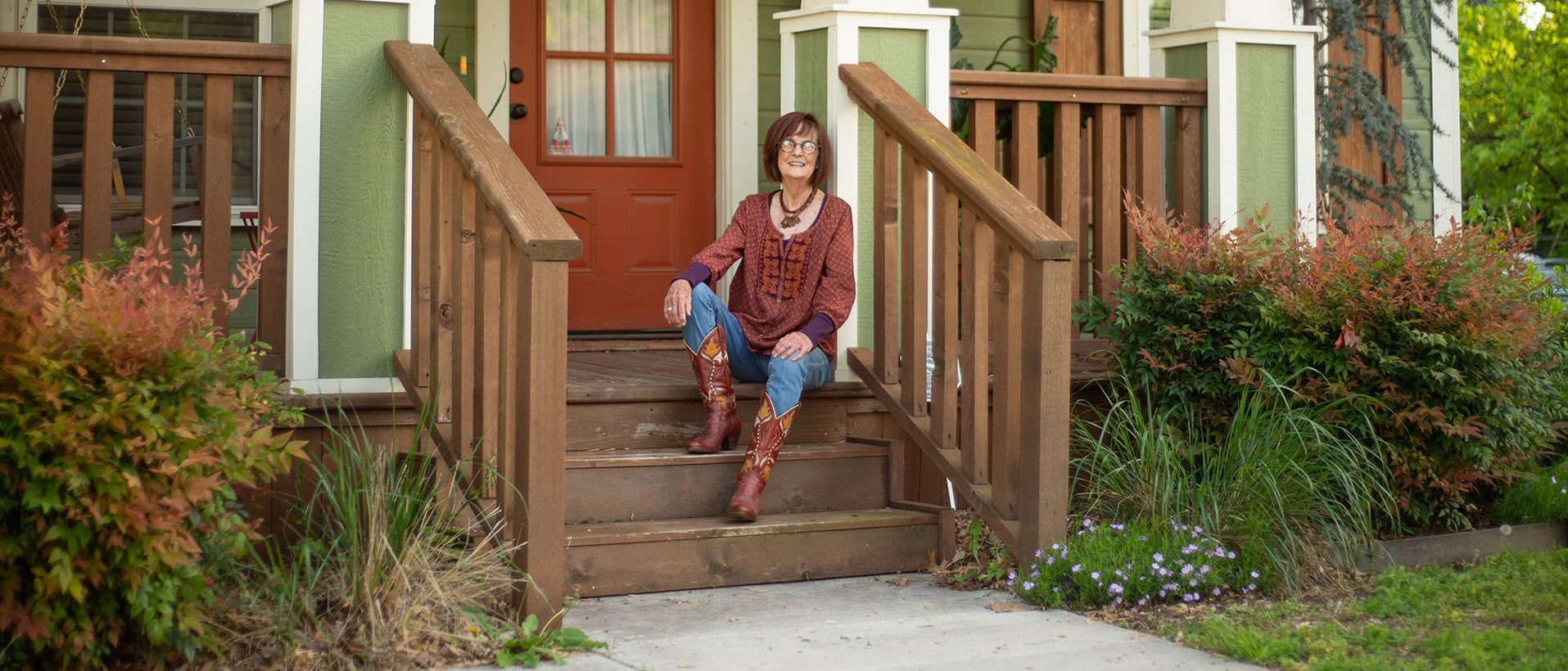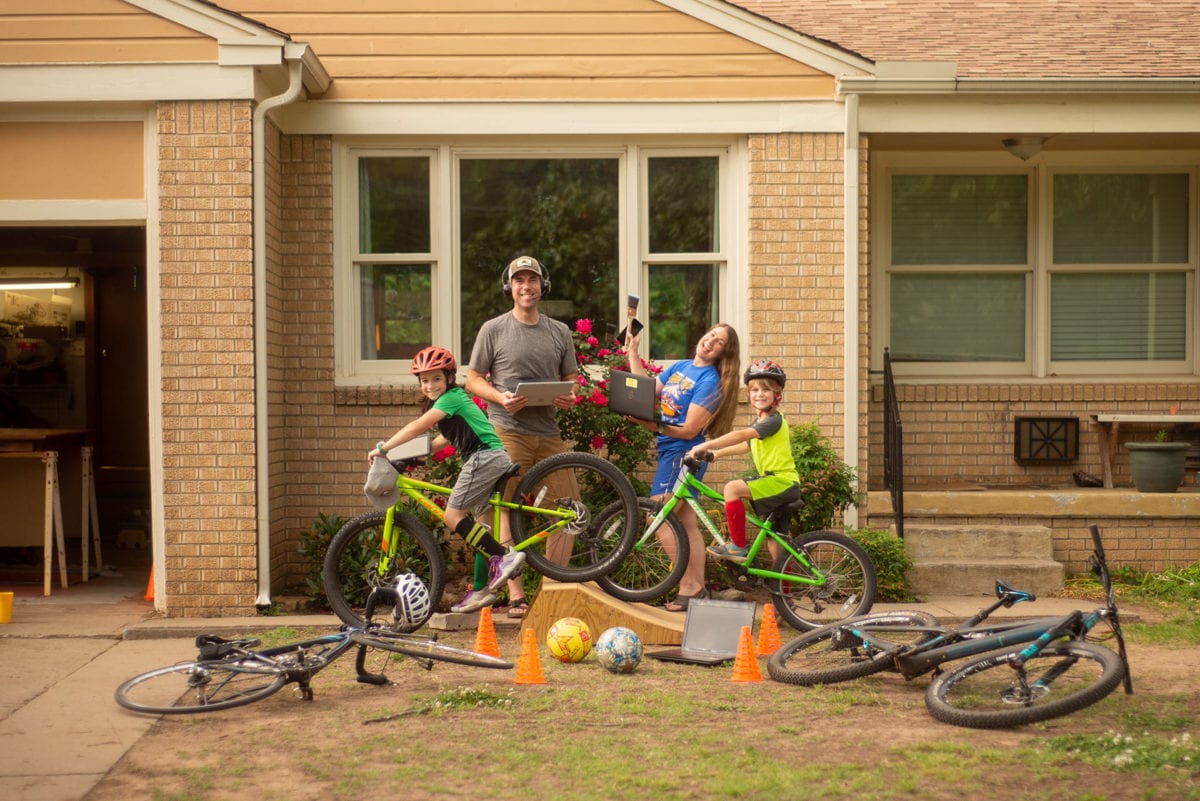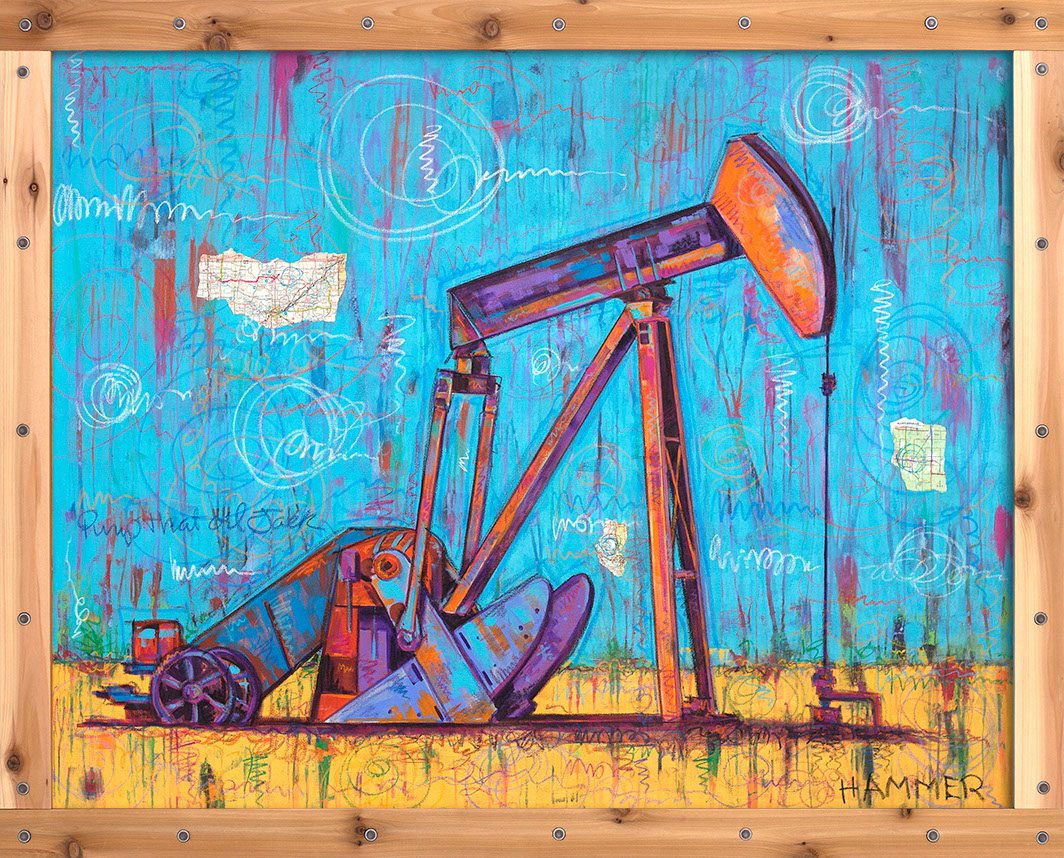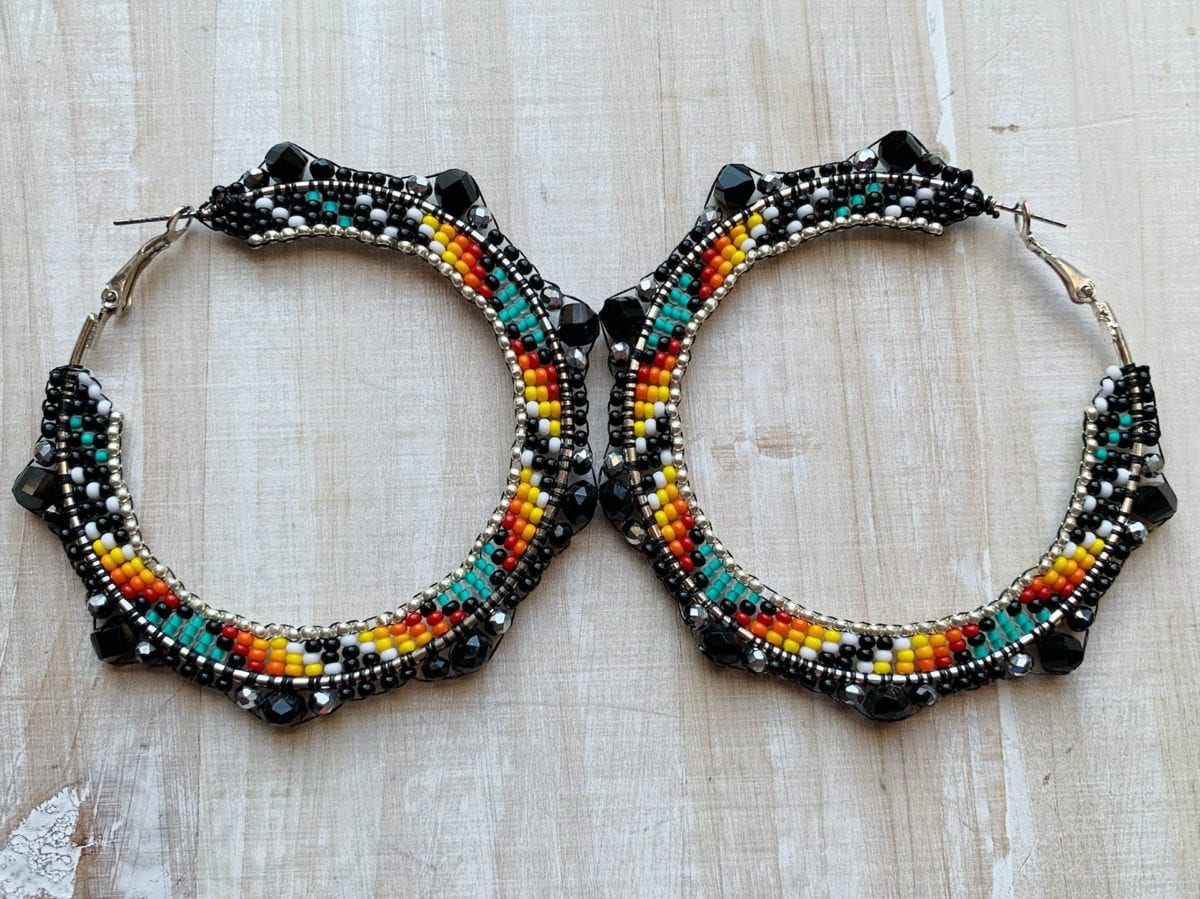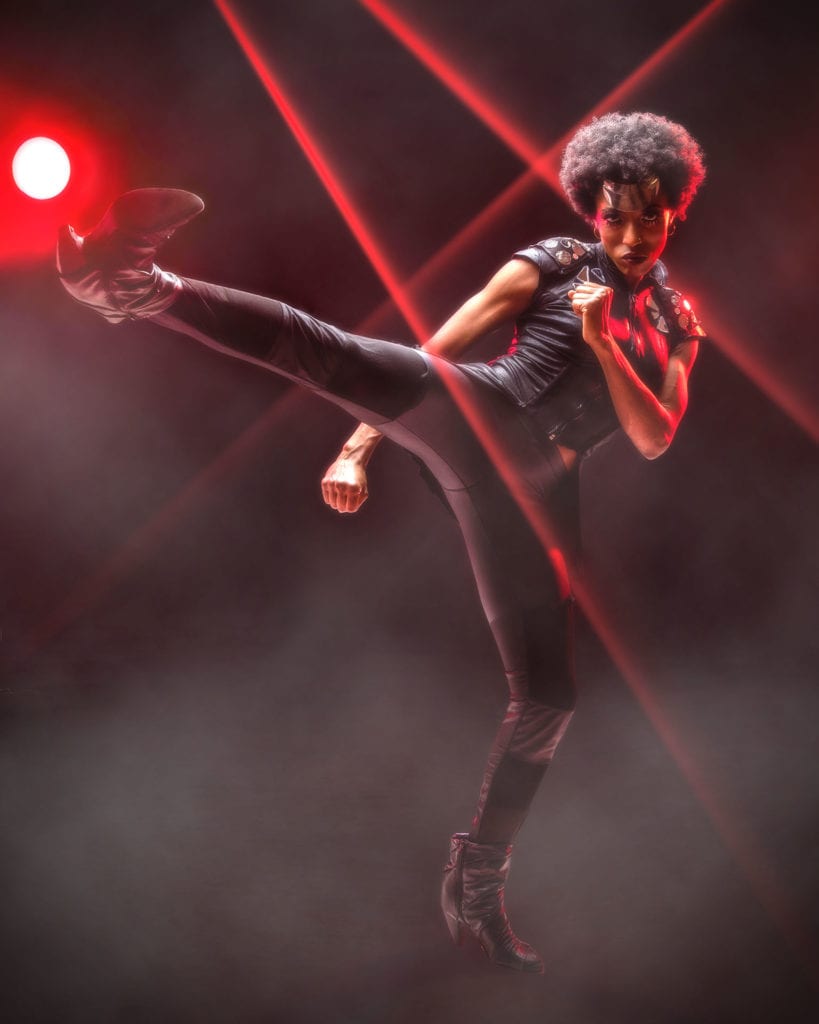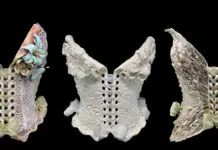Tulsa musician Branjae and Claremore artist John Hammer created expressive works about today’s political climate. Photographer Cody Giles made dates with Norman families on their front lawns. Devin Levine, executive chef for the BOK and Cox Business Convention Centers, turned braised meat, crème fraiche and puff pastry into a little something he called the ‘Pork Belly Pop-Tart.’ And Cheyenne and Arapaho artisan Krista Blackwolf, working in her home studio in El Reno, found “pandemic peace” by crafting Native American earrings.
Members of Oklahoma’s creative community have not had it easy since COVID-19 arrived in March 2020. Concerts and art openings were canceled, and many of the festivals that artists depend upon to market their work were not held last year.
But in the midst of heartache, they reached outside of themselves to bring cheer to their neighbors. They learned new skills, took some risks and stepped up the timetable on long-delayed projects.
“I thought it would be cool to do pandemic family portraits,” says Giles. He created a Google sign-up sheet, offering to go to people’s houses, stand at the edge of the lawn and grab a photo. “I figured I would get 20 to 30 families, just people I know who wanted to humor me. I got 190.”
Some people who signed up for the free digital photo appeared in costume. Others dragged out furniture or camping equipment to create sets.
“It was really cool to connect with the community during a time when it was so scary,” Giles continues. “I wanted to literally create a snapshot of what it was like to be quarantined.”

Norman families prepared their front lawns for pandemic portraits.
Photo by Cody Giles
Artist John Hammer created a variety of protest pieces to start commentary on social issues.
Art by John Hammer
Krista Blackwolf used quarantine to pursue a long-postponed dream of creating jewelry. BlackwolfBeadz is now up and running.
Photo courtesy Krista Blackwolf
Tulsa-based funk and soul artist Branjae performed porch concerts to keep fans entertained and in high spirits.
Photo by Josh New
Giles says his portraits became part of an exhibit, Between Art and Quarantine, held at MAINSITE in Norman. Norman artists Joshua Bodyston, Brad Stevens and Shevaun Williams were also featured in the show with their versions of quarantine creativity.
Branjae, a funk and soul artist, knew she could only stay in her house for so long.
“I’m definitely an entertainer,” she says. “I thrive on shows.”
So, backed by two- and three-piece bands, she graced Tulsa neighborhoods with “On a Porch Somewhere” concerts on lawns and back porches.
Blackwolf, who has always loved Native jewelry, says she decided three years ago that she had watched enough how-to videos, and that it was now time to buy some supplies and give it a whirl. She posted a photo of her first design, a pair of bright yellow beaded hoop earrings, on social media. A friend told her to let her know when she was ready to start selling her work, and soon, BlackwolfBeadz was born.
Blackwolf is a Modoc Nation employee who had not been in a hurry to grow her side business. But when COVID-19 arrived, she found that beading was good for her state of mind. Her earrings have now gone out to 17 states, along with Canada and Japan. One online retailer sold 20 pairs in two hours.
Blackwolf says her four children are also learning to bead; her 10-year-old even wants to launch her own line.
“That’s the whole reason we do this, is so we can pass it on and they can pass it on,” Blackwolf says of Native American traditions.
During a summer marked by unrest, Branjae says that “there have been many things to write about.”
Her new single, “Free Facts,” looks at what she calls willful ignorance.
“We refuse to look at the facts, and just gather information that supports our individual biases,” she says. “As a culture, we should be more driven to know the information.”
At the BOK Center and Cox Business Convention Centers in Tulsa, Levine says he revamped his banquet menus during the downtime brought about by canceled events, and focused on creating grab-and-go snacks and meals for socially-distanced functions held at the two venues. There were some unexpected opportunities.
“We got a call last year in July from a film crew that was doing a movie shoot in Tulsa, and they needed catering for the actors and the extras,” says Levine. With safety measures such as Plexiglas and individual packaging in place, he and his team catered meals at filming sites around Tulsa and Bartlesville.
“We fed 50 to 75 people, twice a day for six weeks,” he says, and that led to other gigs feeding film crews.
And Hammer says that the turbulence of 2020 inspired him to create protest art. Using his skills in screen printing and letterpress, he created Fifty Ways to a Better World. Each of the 50 pieces addresses a global issue Hammer says needs to stop – like racism, domestic violence, global warming and police brutality.
“So many things become sound bites and are almost forgotten after the news cycle,” he says. “We still need to focus on all of these things that need to stop, not just what is in the news right now.”
The 50 originals were exhibited last summer at the Dennis R. Neill Equality Center in Tulsa. Hammer would like to find a permanent home for the collection.






















